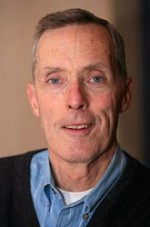The Catholic Campaign for Human Development, the official domestic anti-poverty agency of the U.S. Conference of Catholic Bishops, works to break the cycle of poverty by helping people help themselves.
It has been doing good deeds for more than four decades. It has also been the subject of repeated criticism by those who say the agency does not directly help the poor and works for social change. The most recent criticisms focus on the agency’s grants made to coalitions, not all of whose member organizations support all Catholic positions on social issues.
It has its defenders as well. The latest defense comes from Faith in Public Life, which last month released a report, “Be Not Afraid?: Guilt by Association, Catholic McCarthyism and Growing Threats to the U.S. Bishops’ Anti-Poverty Mission.”
The hyperbole of the title and some of the language in the report is over the top. But it makes a good point in saying groups such as the American Life League and the Reform CCHD Now Coalition are guilty of creating “a culture of fear around community organizing.”
Community organizing has been a red herring for decades.
The agency’s mission is to “address the root causes of poverty in America through promotion and support of community-controlled, self-help organizations and through transformative education.”
The agency revised its guidelines for grants in 2010 after critics who claimed the program had lost its way by funding groups that were part of coalitions taking positions contrary to Catholic teaching (mainly abortion and same-sex marriage). The agency said five of 270 grantees found in violation of CCHD requirements lost all funding.
An organization that promotes or participates in activities that support principles contrary to Catholic teaching or works against the USCCB’s priorities to defend the life and dignity of all human persons is not eligible for funding.
Why is community organizing necessary? Because power does not listen to the poor. Can the poor get appointments with a mayor or a governor? Organized as a community, the poor have a voice.
Money does not eliminate poverty. Being poor is not about being without money. It is about being without power. Power is simply the ability to act, to initiate. Lack of power results in having few, if any, options.
To cure poverty is to change the system, to change the structure. If the social order is to be changed, those affected can be expected to become alarmed. Community organizing is one way to do it.
Those opposing empowerment of the poor as a matter of justice do so by furthering the misunderstanding that religion should limit itself to providing symptomatic relief rather than working to make structural change.
The first attention we pay to poverty is assistance. But our aid cannot end there. We must work toward human promotion and integration in the community.
“The poor must not be perpetually marginalized,” said Cardinal Jorge Mario Bergoglio (now Pope Francis) in the book “On Heaven and Earth.”
He has firsthand knowledge of poverty, its effects and cures from spending time with the poor as archbishop of Buenos Aires, Argentina. There’s a new sheriff in town and there is evidence that he is in full accord with the mission and function of programs such as CCHD.
The classic advice to the scrupulous: “Don’t be holier than the pope” is a good admonition. Those out to sully the reputation of an organization engaged in the mission of Christ should take heed.
***
Kent is the retired editor of archdiocesan newspapers in Omaha and Seattle. He can be contacted at: considersk@gmail.com.



Share this story